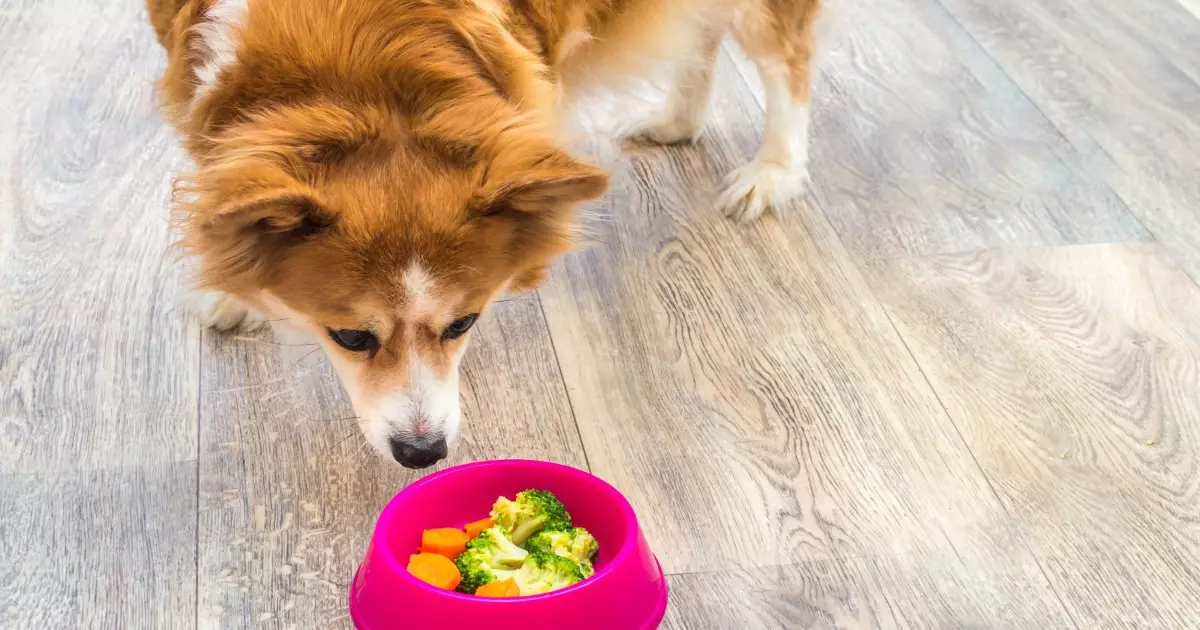The noble canine companions that share our lives are often seen as carnivorous by nature, but a growing number of pet owners are exploring the option of a vegetarian diet for their furry friends. This raises an important question: Is it safe for dogs to thrive on a plant-based regimen? Research indicates that a carefully structured vegetarian diet can sustain your dog’s health and happiness. However, it requires diligent planning to ensure that the diet is nutritionally complete.
Transitioning to a vegetarian diet is not as simple as switching out meat for plant-based alternatives. Dogs require a balanced intake of proteins, vitamins, and minerals to flourish, and it is imperative that any vegetarian meal plan meets these needs. A diet rich in high-quality proteins from sources like lentils, beans, and dairy, in conjunction with grains such as brown rice and whole grain cereals, can offer a robust nutritional foundation. Approximately half of your dog’s dietary intake should consist of grains, while the remaining portion can include a variety of protein sources and vitamins.
Adopting a vegetarian diet can yield multiple health benefits for dogs when implemented thoughtfully. For instance, dogs that grapple with food allergies or sensitivities may find relief in a vegetarian diet that obviates traditional meat sources. Additionally, a diet lower in saturated fats can help in maintaining a healthy weight and avoiding obesity-related complications. Furthermore, many owners witness improvements in their dog’s coat condition, oral health, and digestive processes, thanks to the inclusion of wholesome plant foods.
In today’s world, where environmental concerns are at the forefront of public consciousness, transitioning to vegetarian dog food can also be motivated by ecological factors. Producing plant-based proteins typically requires fewer natural resources when contrasted with meat production. This shift not only benefits your dog but also contributes to sustainability efforts significantly.
As with any shift in diet, gradual introduction is key. Abrupt changes can lead to gastrointestinal distress, presenting symptoms such as diarrhea or vomiting. Careful observation during the transition period can help identify any adverse reactions. Should such symptoms manifest, it is advisable to consult a veterinarian promptly.
When considering vegetarian options, various vegetables like sweet potatoes, carrots, spinach, and green beans make for great additions, providing necessary vitamins and minerals. It is essential, however, to steer clear of toxic foods such as onions and grapes, which can be harmful to dogs. Cooking certain vegetables—such as steaming or pureeing—can improve digestibility, aiding in the absorption of essential nutrients.
For those who prefer ready-made solutions, numerous commercial vegetarian dog foods are available at pet stores, offering convenient and nutritionally balanced meals. Consulting a veterinarian or animal nutritionist is critical for ensuring that your dog’s unique dietary requirements are met effectively. Tailoring a vegetarian diet to suit your dog’s individual health profile fosters not only optimal wellbeing but also a harmonious lifestyle that benefits both pet and planet.

